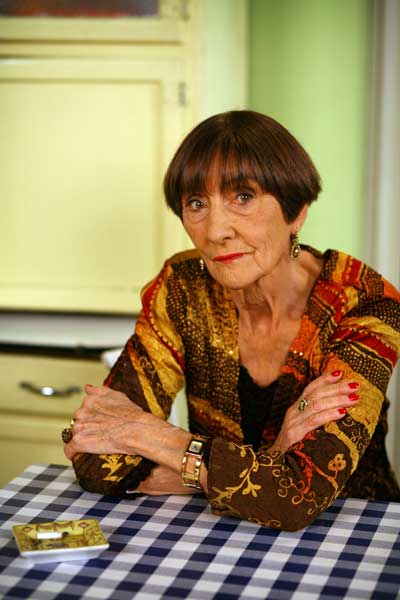Passed/Failed: An education in the life of June Brown, actress
'I read the whole of Dickens at age 10'

Your support helps us to tell the story
From reproductive rights to climate change to Big Tech, The Independent is on the ground when the story is developing. Whether it's investigating the financials of Elon Musk's pro-Trump PAC or producing our latest documentary, 'The A Word', which shines a light on the American women fighting for reproductive rights, we know how important it is to parse out the facts from the messaging.
At such a critical moment in US history, we need reporters on the ground. Your donation allows us to keep sending journalists to speak to both sides of the story.
The Independent is trusted by Americans across the entire political spectrum. And unlike many other quality news outlets, we choose not to lock Americans out of our reporting and analysis with paywalls. We believe quality journalism should be available to everyone, paid for by those who can afford it.
Your support makes all the difference.June Brown MBE, 82, plays Dot Cotton, now Branning, the "legend of the launderette" in Albert Square. She is the only actress to appear solo in an entire episode of a soap and was nominated for a Bafta. She was recently awarded an honorary degree by the University of East London.
My character says "I don't never", which is dreadful. I'm absolutely pedantic about language; it must go back to my schools. In 1930, when I was three and my sister was four, my father sent us to Miss Tracy's, a little "dame's school" in Ipswich. I do remember playing with an abacus. He took us away after a term because he thought we weren't learning anything.
We went to St John's Church of England school, also in Ipswich. The headmistress, Miss Mills, had a desk in the middle of the hall, which had two classrooms on either side partitioned off by curtains. We had blackboards all round the room; you had your own blackboard and you did your work on it.
We could all read; I read the whole of Dickens when I was 10 and had two "pupils" at school who weren't as good and I helped them.
My handwriting was so good I won a prize, a cardboard cut-out of a farmyard; my mother threw it away when we moved. We were all well-behaved and there was no question of mucking around. I don't think we painted or did anything playful like that.
My sister died when she was eight. One teacher was rather sarcastic to me and I told my mother: "Miss Rae bullies me." I didn't know for years that my mother went up to the school and said: "Be a bit kind: her sister's died." Miss Rae was kind after that.
I didn't realise I was clever but I won a scholarship to Ipswich High, part of what was then the Girls' Public Day School Trust. The headmistress looked down her nose at the scholarship girls. She said: "You should not be proud of your brains, you should be proud of your birth."
It was a very good school but it didn't do me any good, because they put me in the class with the 10-year-olds instead of the 11-year-olds and I was just marking time for a year; I lost the will to work.
I was a procrastinator and a bookworm but I passed all my School Certificate exams, the equivalent of O-levels; I got three distinctions, three honours and three good passes.
I loved French translations and would start the homework as soon as the teacher left the room. I loved biology and would sometimes stay at school until six with my eye to the microscope.
I wanted to go to a school of osteopathy but my father said: "I'm not paying for you to do that: you're a girl and will get married."
When I was 17-and-a-half I volunteered for the Wrens. I auditioned for a play and we took it round the Southern Command area and I really enjoyed it. I got laughs and that was when the bug got me.
I got a grant for the Old Vic Theatre School in London, which had just started. It was only five terms; they used to break you down and never quite put you together again but it was an excellent training.
One of the people who ran it was Michel Saint-Denis, who had broadcast to France during the war. He had once sat on Churchill's knee when Winston came in to make a broadcast in his terrible French; there was only the one chair.
Join our commenting forum
Join thought-provoking conversations, follow other Independent readers and see their replies
Comments